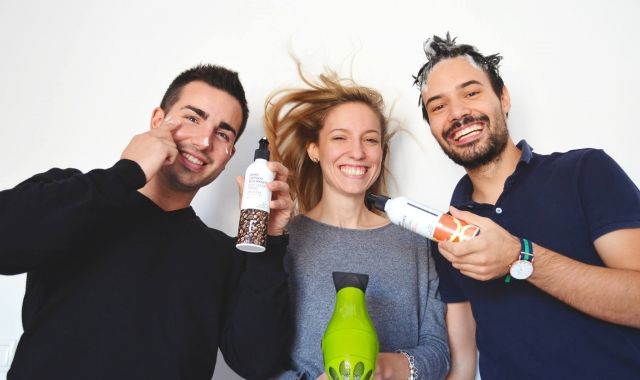
Just because a product bears the slogan 'natural' does not mean that all of its ingredients are that. Perhaps 5% of them will be, or maybe 10%, but the figure is usually under half. This is one of the main criticisms from the CEO and cofounder of Freshly Cosmetics, Miquel Antolín.
The company has been operating for almost a year and, he says, is different from the competition in that the products made of 99% totally natural ingredients "from formulation to selling to the client is done through ecommerce." "We are trying to update the 21st century’s concept of cosmetics with organic ingredients that can go from the typical lavender or thyme to algae or berries," he says, adding, "what we do is innovate with scientific basics that endorse their use."
Diffuse regulation
The company was set up by three chemical engineers who, tired with the sector’s focus, saw an opportunity to turn the market on its head. "We wanted to distance ourselves from pseudo-natural products that contain a minimum amount of organic elements and that are not covering the demand of a market that is growing significantly," argues Antolín. And they did it in record time: the company was set up in September 2015 and six months later they were already on the market
The problem they identify is the lack of a regulatory framework: "There is no regulation of the percentage of natural ingredients needed to be able use the adjective on the label. There is certification, but it is not required." Freshly Cosmetics does have a seal, that of Vida Sana, a Swiss certifier that oversees the formulas and that, in this case, assures the consumer that the product is free of paraben preservatives, silicone, sulfates or any other synthetic element. "The only 1% that is not natural are the preservatives that by law have to be included so that the product lasts at least six months, because so far we have not found a natural alternative," adds the CEO.
For the company, the fact of passing the certification process is a "sign of transparency towards the consumer." Antolín says that customers still don’t know how to read all of the labels and that the certificates allow them to identify trustworthy brands.
Not luxury, but health
Freshly Cosmetics’ main target is women between 25 and 35 who go online to find new brands and who buy most of their products on the Internet. "They are consumers who talk to each other to get information about natural cosmetics and they have the power to influence. They ask about brands, they become informed and see social networks as a much more transparent channel," he says about the customers, adding that "the buyers increasingly value the information they get and how the brands behave towards them."
This is one of the reasons why the eco segment has gained ground. Food has boosted it the most, but natural cosmetics are experiencing annual growth of 10% in Europe. Antolín attributes the consolidation to the new generations, while pointing to the lack of financial resources as why the rise has not been greater. In any case, he says that "luxury is disappearing because the consumer prefers to invest in quality" and that the real boom will come when the youngest members of society join the job market.
It is no longer about whims, but needs, and the brands know it. The cofounder of Freshly Cosmetics thinks that within four years large brands like L'Óreal will also add natural products to their catalogues and it will no longer be a market dominated by small brands. "Consumers increasingly try more creams or shampoos and, as they like them, they end up including them in their lifestyle and adapt them to their acquisitive capacities," he says. In the next few years, the team has set the objective of establishing the brand in Spain –"and if we can in Europe"- so as to face the future rise in competition.
Consolidating the online presence
The formulas are designed in Reus, where the company is based; a Barcelona laboratory makes the product; and it is packaged by a company in Àlaba while the labels are printed by a business in Anoia that also works with Freixenet and Codorníu, among others. As for the ingredients, although they include elements from all over the world, they try to procure local products whenever possible.
This entire production process allowed the firm to end 2016 with a turnover of 273,000 euros and they expect to reach a million euros this year. For the moment, they are focused on consolidating the brand and strengthening their presence on the networks, as well hoping to exceed the 25% barrier of return customers.